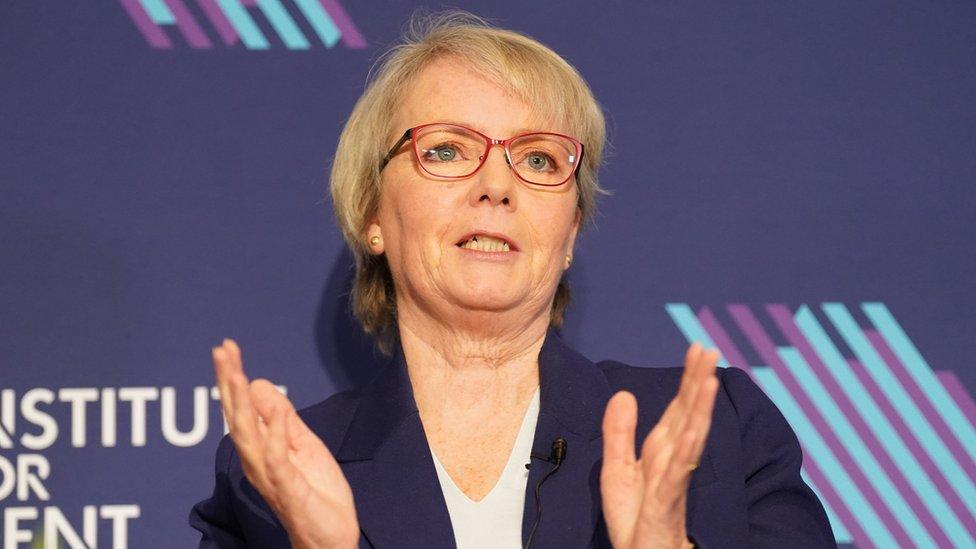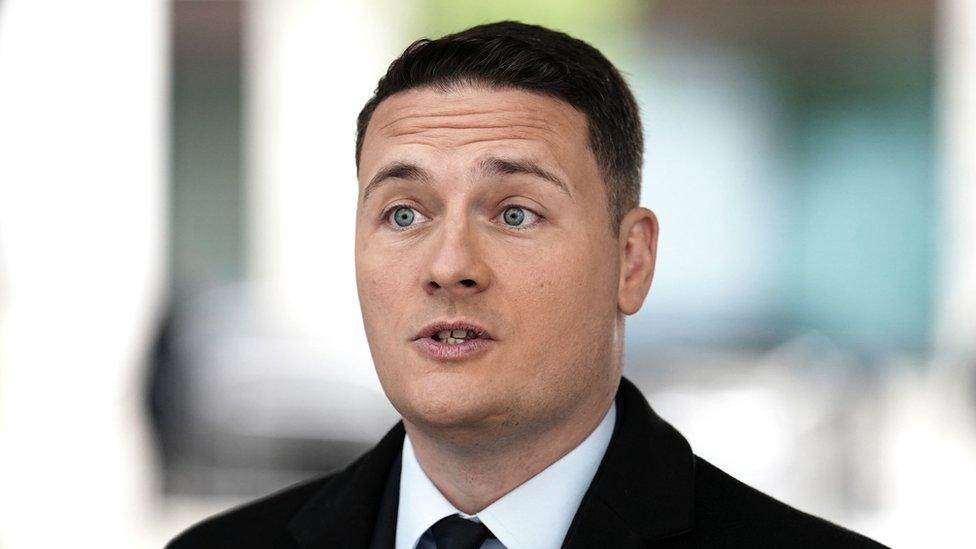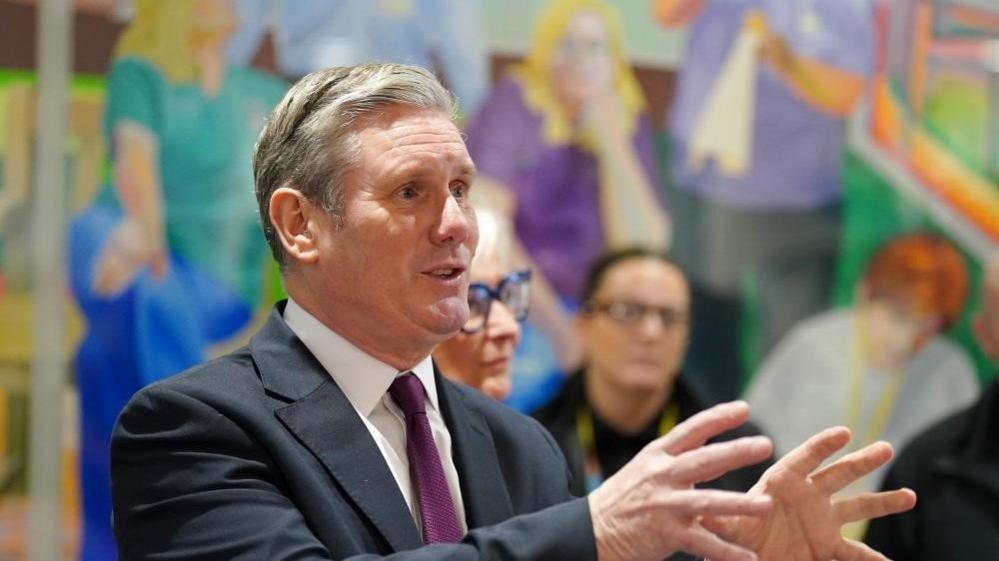Labour vows to tackle 'NHS waste' if it wins next election
- Published

Labour has vowed to tackle NHS "waste" if it wins the next election, saying inefficiencies are costing the health service billions of pounds.
In a speech, shadow health minister Karin Smyth said taxpayers were "paying more and getting less" due to lack of reforms under the Conservatives.
She said savings could be made by improving communication with patients and cutting management consultants.
Staff shortages had also fed a reliance on recruitment agencies, she added.
More effective use of resources, Ms Smyth argued, was also supported by NHS workers who were frustrated by old kit and "unnecessary box-ticking exercises".
Labour has made improving NHS services a central part of its offer to voters ahead of the general election expected to take place later this year.
But with the party also signed up to strict tax and spending rules to burnish its economic credibility, it has not committed itself to big spending increases on health.
Instead, it insists performance can be improved through tackling ill health sooner, more locally-delivered services, and better use of new technologies.
To the unease of some on the left of the party, it has also set out plans to increase use of the private sector to tackle backlogs.
'Cultural problem'
Ms Smyth set out Labour's pitch at the annual conference of the Institute for Government think tank in London, standing in for shadow health secretary Wes Streeting, who missed the event because of illness.
In her speech, she said the government must "do better with the money the public gives to the NHS".
She added that both staff and patients were aware of "waste in the system", but that Conservative ministers had shown a "lack of bravery in taking on necessary reforms".
"This is a cultural problem, set from the top," she added. "Across the service, it adds up to an enormous waste of money we don't have."
Ms Smyth also said that, if it took office, Labour would look to pay high street opticians to carry out some routine NHS eyecare, such as for cataracts and glaucoma, in an effort to reduce backlogs.
The party says this would come through negotiating an England-wide "national deal" with opticians.
It has not put a cost on the proposal, but argues it can be delivered through existing budgets by reducing the time spent by higher-paid NHS specialists on routine care.
Pagers and postage
Among the examples she cited were appointments missed because letters arrived late in the post, and hospitals repeating tests that had already done by GPs.
The party is also highlighting the continued use of pagers by NHS staff, as well as spending on paper and postage, as examples where efficiency could be improved.
Labour calculates that hundreds of millions of pounds could be saved by routinely texting patients appointment reminders. It also wants to notify all NHS app users when they become eligible for vaccinations and screenings.
It also says its policy of training more staff, paid for by ending non-domiciled tax status, would bring long-term savings by cutting the NHS's growing reliance on agency staff.
Challenged after her speech on how Labour's efficiency drive would be different to those that have come before, Ms Smyth said the "real difference" would be a focus on what patients wanted instead of "better supply chains".
However, Health Secretary Victoria Atkins said the Conservatives had delivered "record funding for the NHS", and had laid out a long-term plan to train and keep more NHS staff.
"By sticking to the plan that Rishi Sunak has set out we will strengthen the economy, that's how you pay for a strong NHS," she said.
"Labour can't say how they would pay for their policies because they don't have a plan," she added.
Related topics
- Published21 May 2023

- Published11 January 2024
